We run our website the way we wished the whole internet worked: we provide high quality original content with no ads. We are funded solely by your direct support. Please consider supporting this project.

Glorious Creation
I’m not a scientist, but I’ve always loved to dabble in it. In fact, I collaborated with some friends and wrote a quirky picture book on the interfacing of various areas of science (e.g. quantum theory, chaos theory) and the open view of the future. It’s called The Cosmic Dance and, just to let the cat a little bit out of the bag, at some point in the future we’ll be offering it to friends of ReKnew for free.
In any event, over the last couple of years, and especially through my participation in BioLogos, I’ve developed a special appreciation for the way some scientists who are Bible-believing Christians see and express the glory of God in the evolution of the cosmos and of humanity. I especially love the way some articulate creation as a sort of open-ended adventure, even for God. These scientists see the beauty and grandeur of the creation unfolding, with a delicate balance of order and spontaneity permeating everything. From the quantum particle to human beings to the universe itself, every distinct thing, and everything in relation to every other thing, is a marvelous dance of structure and freedom!
A scientist who captures these ideas beautifully is Karl Giberson, one of the scientists who heads up BioLogos. Here is a little reflection by Bruce Epperly on his new book, Seven Glorious Days. I haven’t yet read the book, but this reflection makes me want to. Keep dancing!
From the book review:
There need not be competition between people of faith and scientists. In fact, if the early Christian declaration that “wherever truth is found, God is its source” reflects God’s inspiration of all quests to understand the universe, then people of faith should train their eyes to see God’s presence in the laboratory, the Hubble telescope, the Higgs Boson, the fossil field, and the medical theatre as well as the meditation hall and sanctuary. Perhaps Robert Jastrow is correct when he notes:
For the scientist who has lived by his faith in the power of reason, the story ends
like a bad dream. He has scaled the mountains of ignorance; he is about to conquer
the highest peak; as he pulls himself over the final rock, he is greeted by a band of
theologians who have been sitting there for centuries.
Yet it may not be such a bad dream, but the discovery that our adventures of the spirit – motivated by wonder and the desire to know – are blessed activities, witnessing to a Wisdom beyond and within that embraces and inspires every quest for truth. Scientists and people of faith can venture forth, seeing the world through the lenses of each discipline, and joining in common cause to heal this good earth.
Image by Marc Soller. Sourced via Flickr.
Related Reading
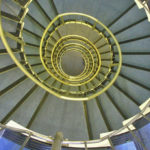
Podcast: What Are Your Thoughts on DNA Modification?
Greg discusses the benefits and risks of DNA modification. http://traffic.libsyn.com/askgregboyd/Episode_0229.mp3
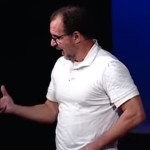
Sermon Clip: That, Not How
The Genesis 1 creation story has always left people with questions. The main one being: Is Genesis 1 a literal story of how God created our universe? In this sermon clip, Greg Boyd talks about how when he was young, he wrestled with this question as a Christian. In the full sermon, Greg presents three…
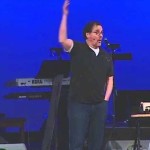
Sermon: Keeping the Valve Open
In this short sermon clip, Greg Boyd talks about Paul’s writings on getting our reality to line up with what God says is real. The full sermon discusses how God’s design for creation is beautiful. But, sometimes, we don’t follow God’s design for our life. In this sermon, Greg and Vanessa Williams address the battlefield…
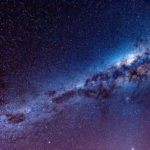
Love and Quasars: The Paul Wallace Interview (podcast)
Dan Kent talks with Paul Wallace about his new book: “Love and Quasars: An Astrophysicist Reconciles Faith and Science.” Episode 593 http://traffic.libsyn.com/askgregboyd/Episode_0593.mp3
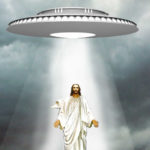
Do People Exist in Parallel Universes, and Do They Need Jesus? (Podcast)
Greg talks the sin economy and if sin actually threatens God. Episode 474 The Interview: http://traffic.libsyn.com/askgregboyd/Episode_0474.mp3

The Beautifully Bizarre Entangled You
Reality is not always what it seems. We get lulled into treating our miraculous lives as something ordinary if we’re not paying close attention. Last weekend Greg preached on some of the more bizarre findings of quantum physics and what this this reveals about how beautifully entangled we are with God and with one another.…
